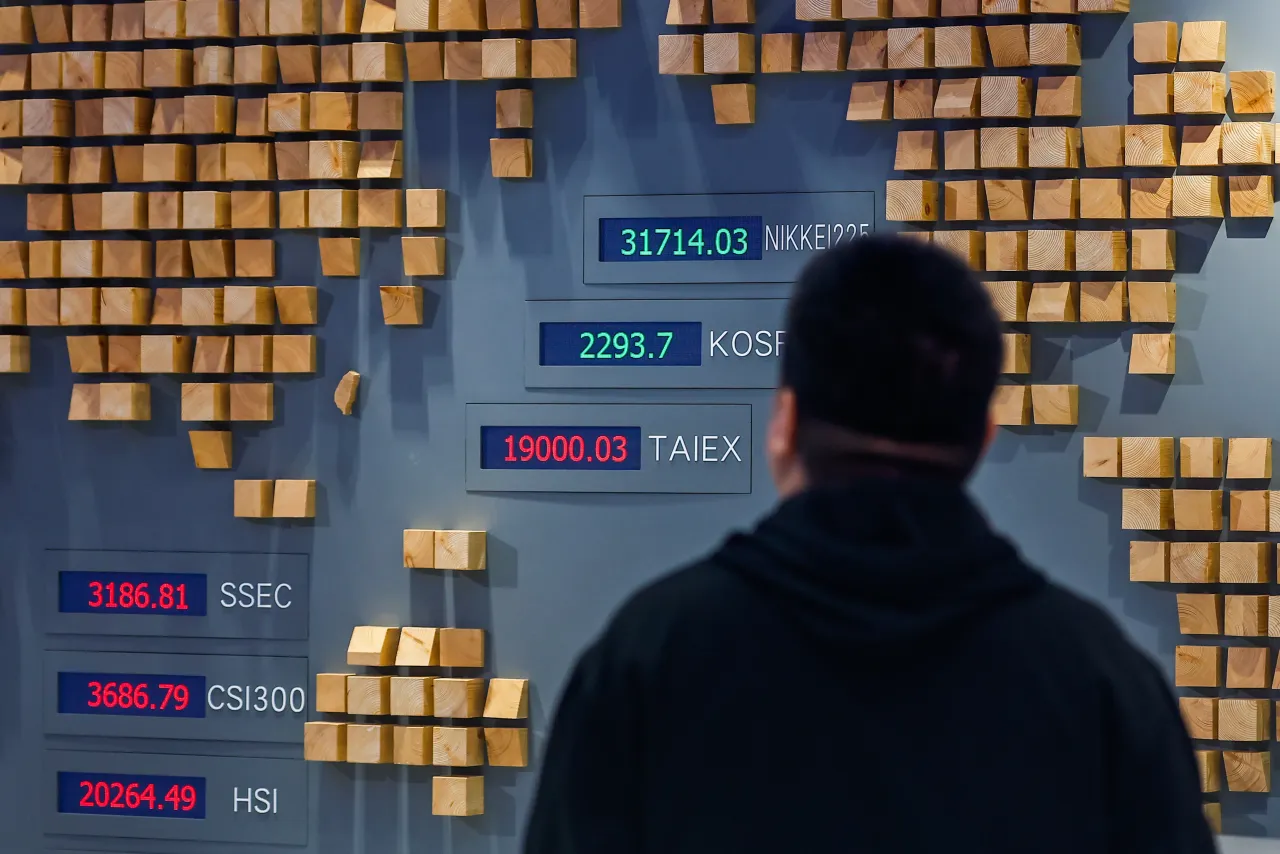Advertisement|Remove ads.
These 2 Foreign Chip Giants Shrug Off Trump’s 100% Semiconductor Tariff Blow In Asia Trading

President Donald Trump's threat to impose 100% tariffs on chips imported from overseas has sent shockwaves among Asian investors, who have sold off shares of domestic semiconductor companies. However, two companies defied the chip sell-off in Asia on Thursday.
Taiwan-listed shares of chip foundry Taiwan Semiconductor Manufacturing (TSM) were last seen trading up by about 5%, with the upside accompanied by above-average trading volume. Seoul-listed shares of South Korean electronics giant Samsung climbed over 1.80%.
These two companies also featured in Apple’s press release sent out on Wednesday, announcing its $100 billion additional commitment to bring manufacturing to the U.S.
Apple said TSMC’s Arizona plant would produce tens of millions of chips to facilitate the tech giant’s use of one of the most advanced technologies in the U.S. The Taiwanese company has three fabs at the site, one of which produces chips based on the N4 process technology. The fab began volume shipments in the fourth quarter of 2024.
The second fab is scheduled to start volume production based on the N3 process technology in 2028, and a third fab, set to use the N2 and A16 process technologies, is expected to commence production by the end of the decade.
Apple stated in the release that it was collaborating with Samsung at its Austin, Texas, facility to introduce an innovative new technology for chip manufacturing. Recent news that Samsung has won a $16.5 billion contract to manufacture Tesla's next-generation AI6 chip at its other Texas factory has also boosted investor sentiment.
On Stocktwits, retail sentiment toward TSMC improved to ‘neutral’ (54/100) by late Wednesday from ‘bearish’ a day ago. The message volume remained at ‘low’ levels.

TSMC shares, listed on the NYSE, have gained nearly 18% this year, riding high on strong demand for its chips, driven by artificial intelligence (AI) and high-performance computing (HPC).
The gains have come even as other regional chip companies have come under selling pressure. Japanese chip-equipment maker Tokyo Electron fell nearly 3%, and Renesas Electronics, which makes microcontrollers, analog, power and Systems-on-Chip (SOC) products, plunged over 3.50%.
Chip-testing solutions company Advantest recouped early losses and was down only modestly. South Korean memory chipmaker SK Hynix, which had fallen sharply early in the session, recovered its losses and traded slightly higher. The reversal came after Seoul’s top trade negotiator stated in a radio interview that Samsung and SK Hynix were exempted from the 100% tariffs.
Analysts see Trump’s proposed move as a long-term positive for the industry. Andrew Jackson, head of Japanese equity strategy at ORTUS Advisors, stated that Japanese chipmaking equipment is indispensable for chipmakers seeking to expand their U.S. manufacturing operations, according to CNBC.
Tech giants with deep pockets, such as Apple and Nvidia, and TSMC, would ultimately emerge as winners, as they have the wherewithal to commit the most dollars, said Daniel Newman, CEO of Futurum Group.
For updates and corrections, email newsroom[at]stocktwits[dot]com.










/filters:format(webp)https://news.stocktwits-cdn.com/large_Getty_Images_2249860620_jpg_2bd9e54f08.webp)
/filters:format(webp)https://news.stocktwits-cdn.com/IMG_4530_jpeg_a09abb56e6.webp)
/filters:format(webp)https://news.stocktwits-cdn.com/large_bitcoin_2026_OG_2_jpg_f92901a0f5.webp)
/filters:format(webp)https://st-everywhere-cms-prod.s3.us-east-1.amazonaws.com/Prabhjote_DP_67623a9828.jpg)
/filters:format(webp)https://news.stocktwits-cdn.com/Getty_Images_2231786698_jpg_4d7b65921f.webp)
/filters:format(webp)https://news.stocktwits-cdn.com/IMG_8805_JPG_6768aaedc3.webp)
/filters:format(webp)https://news.stocktwits-cdn.com/large_Shift4_logo_jpg_jpg_1845f04c23.webp)
/filters:format(webp)https://news.stocktwits-cdn.com/large_Oil_drill_06147e8349.webp)
/filters:format(webp)https://news.stocktwits-cdn.com/large_Stock_chart_image_d3ebab70ec.webp)